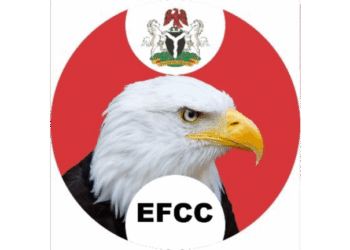The Kogi Leadership Initiative Forum (KLIF), a civil society group, has criticized the recent appointments of two new first-class chiefs from Ekinrin Ade, a community with fewer than 5,000 residents.
The group expressed disapproval of the appointments, which have now increased the total number of first-class chiefs in Ekinrin Ade to three.
Joseph Lawal, the National Coordinator of KLIF, stated on Saturday that the appointments appear to be driven more by political favoritism than by the actual needs of the community.
He suggested that these decisions are aimed at appeasing influential figures rather than serving the interests of the local population. His statement reads:
“The situation in Kogi State is becoming increasingly alarming, as the government appears to be spiraling into chaos under the leadership of Governor Yahaya Bello and Usman Ododo.
“Over the past year, the state has witnessed the appointment of more than 150 first-class chiefs, a trend that raises serious concerns about the motives behind these decisions.
” Many observers believe that these appointments are driven primarily by political gains rather than by genuine community representation or leadership.
“Kogi State, rich in cultural heritage and resources, is currently suffering from a lack of direction. With Governor Bello firmly in charge under Ododo’s shadow, the state’s resources are reportedly being mismanaged and siphoned off daily, leaving the government devoid of any coherent strategy for development.
” Institutions that should serve the public interest are instead being dismantled or manipulated for political patronage, undermining the very fabric of governance.
“One striking example of this troubling trend occurred just yesterday when the governor appointed two new first-class chiefs from Ekinrin Ade, a community with a population of fewer than 5,000 residents.
“This community now has three first-class chiefs, raising eyebrows and prompting questions about the rationale behind such appointments.
” Critics argue that these decisions are little more than political favors, designed to placate influential figures such as Hon. Faleke and Mr. Otitoju of TVC Television, rather than to serve the needs of the community.
“The implications of this lawless reign extend beyond mere appointments. The fabric of Kogi State’s governance is fraying, with political patronage taking precedence over meritocracy and community needs.
“As first-class chiefs are appointed daily, the value of traditional leadership is being diminished, turning what should be esteemed positions into instruments of political maneuvering.
“This not only discredits the role of traditional rulers but also breeds discontent among the populace, who feel sidelined in a system that prioritizes loyalty over capability.
“The citizens of Kogi State are increasingly voicing their concerns, recognizing that without a significant change in direction, the state is on a perilous path toward anarchy.
“The lack of accountability and transparency in governance is fostering an environment where lawlessness can thrive. As communities witness the erosion of their institutions, the potential for unrest grows, and the call for a new direction becomes more urgent.
“In light of these developments, it is crucial for stakeholders, including civil society organizations, traditional leaders, and the general populace, to unite in demanding a return to good governance.
“Kogi State requires leaders who prioritize the welfare of the people over political expediency. The time has come for a concerted effort to reclaim the state from the grips of mismanagement and political patronage.”











